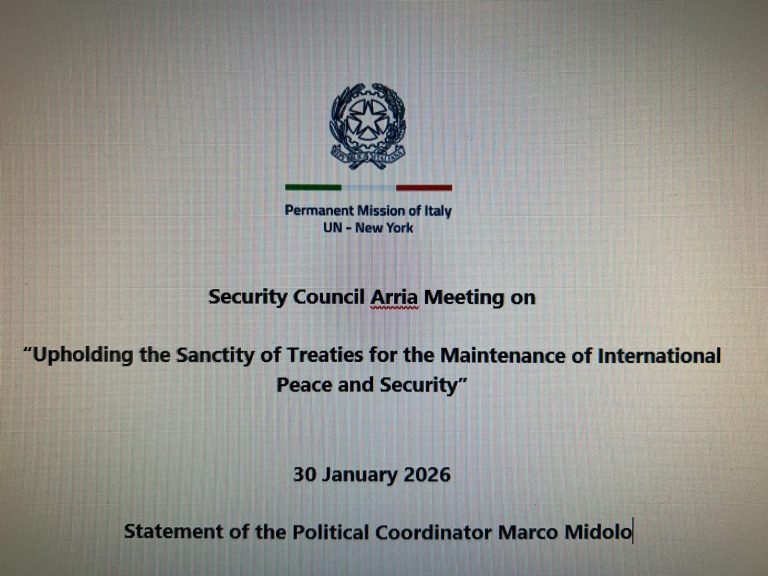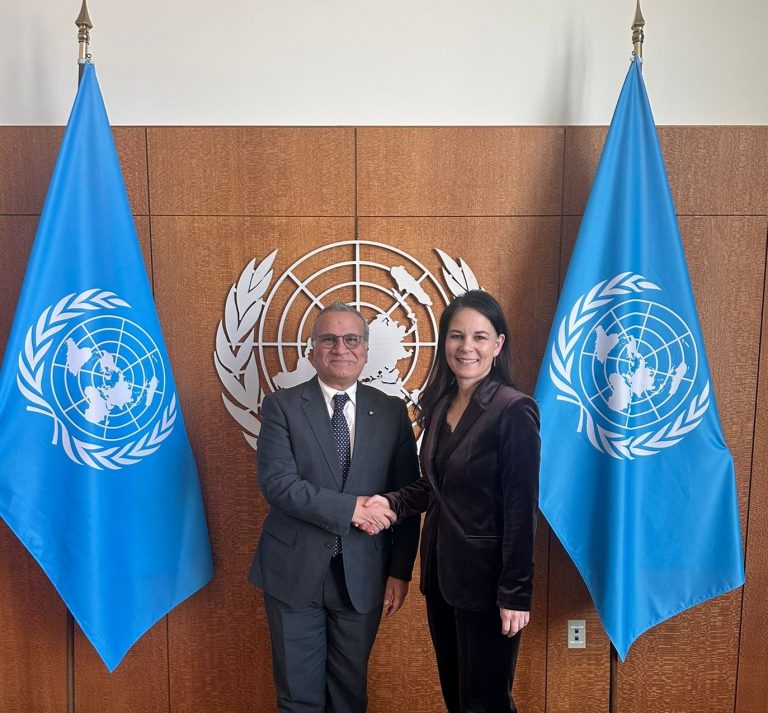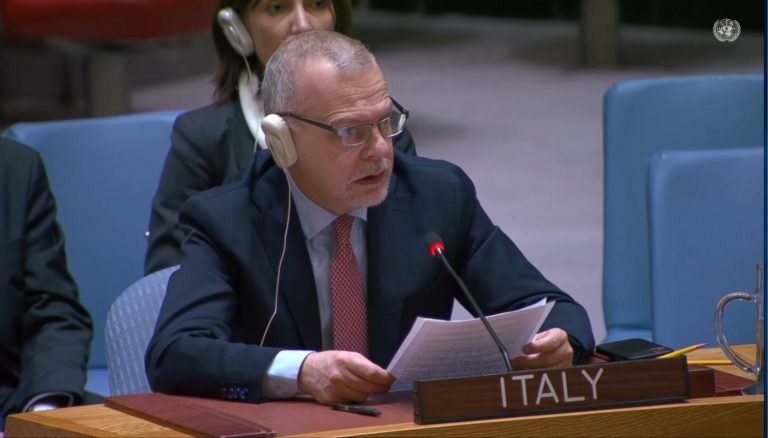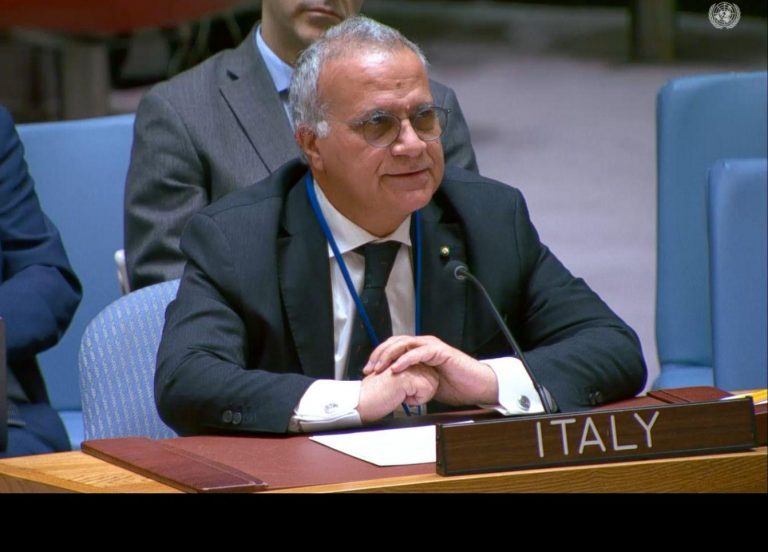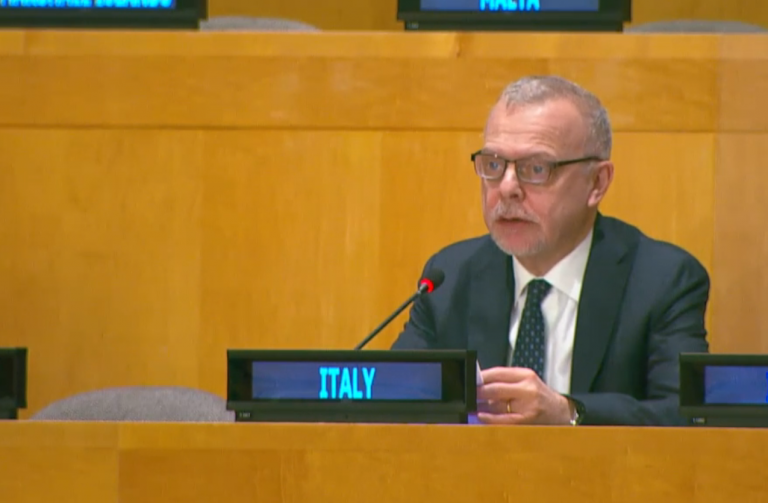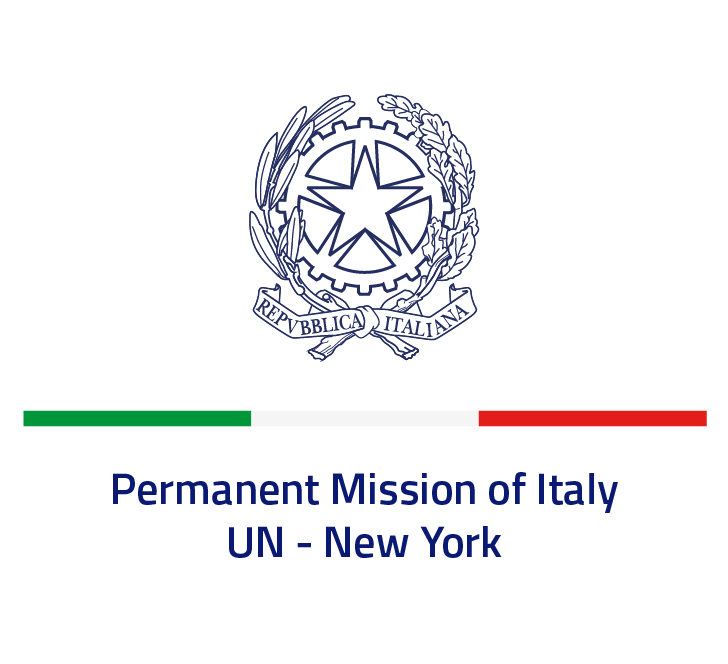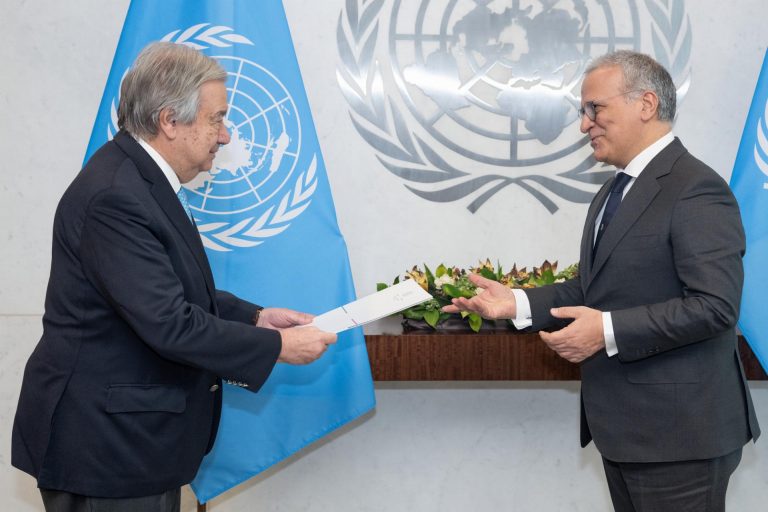New York, Friday, 18 November. “The Mediterranean Diet – A Way of Life for a Sustainable Future,” was the title of today’s event at the UN in New York to celebrate the seventh Week of Italian Cuisine in the World. The event at the UN Headquarters consisted in a presentation and a tasting of typical products of the Mediterranean diet.
Reconnecting with the Expo Milano 2015 theme, “Feeding the Planet, Energy for Life,” Rome’s candidacy to host Expo 2030 was promoted in the setting of the event, with its emphasis on the themes of innovation in agriculture and technology at the service of biodiversity.
The event was co-organized by the Permanent Mission of Italy to the UN and the Future Food Institute, in collaboration with UNESCO, the Municipality of Pollica, the Centro Studi Dieta Mediterranea ‘Angelo Vassallo’ and the Permanent Mission of Morocco to the United Nations.
“We must commit ourselves to proposing food education at all levels, avoiding simplistic solutions that prove inadequate and misleading, as well as market-distorting. This is the case with the so-called “Nutriscore” and other mechanisms that disorient consumers instead of informing them so that they can make free, informed choices that suit their diet,” stated the Minister of Agriculture, Food Sovereignty and Forestry Francesco Lollobrigida, who sent a video message to the event.
The Mediterranean Diet is emblematic of what the concept of ‘Sustainability’ encompasses. Science has shown how the Mediterranean Diet is one of the most important diets and lifestyles for people, planet and prosperity and is therefore one of our allies in accelerating our action on the 2030 Agenda for Sustainable Development,” remarked Italy’s Permanent Representative to the United Nations, Ambassador Maurizio Massari, in opening the proceedings.
The Ambassador then recalled Italy’s action in the context of the 2021 UN Food Systems Summit in New York and the Rome Pre-Summit, as well as during its G20 Presidency, with the first Declaration on Food Security, Nutrition and Food Systems adopted in Matera.
Recalling the key role of food security for peace, Amb. Massari recalled how “the UN-sponsored Black Sea Grain Initiative is a tangible example of how food diplomacy and cooperation can directly contribute to building peace and stability. And it is in continuity with this initiative that Italy has promoted the “Mediterranean Dialogue on the Food Crisis,” to strengthen regional cooperation in addressing the current crisis.”
During the event, moderated by Future Food Institute President Sara Roversi, a video message was shown from FAO Deputy Director-General Maurizio Martina: “Agri-food systems do not work optimally if they cannot make healthy diets possible for everyone. There is a lot of talk about a single global approach to diet. I don’t think that’s the right approach. Food standardization has no future; instead, we need to rely on a plurality of diets and in particular local diets, of which the Mediterranean diet is an example.”
The panel included speeches by Luigi Scordamaglia, CEO of Filiera Italia; Pier Luigi Petrillo, Professor of Comparative Law of Cultural Heritage and Chairman of the World Committee of Experts of the UNESCO Convention for the Safeguarding of Intangible Cultural Heritage; Michael Sperling of the American Culinary Institute (CIA); Stephen Ritz, of Green Bronx Machine; and Stefano Pisani, Mayor of Pollica, UNESCO’s Emblematic Communities for the Mediterranean Diet and former global president of the Slow Cities Network; Ana Paula Martins, Mayor of Tavira, UNESCO Mediterranean Diet Emblematic Communities for Portugal; Mohamed Sefiani, Mayor of Chefchaouen and Regional Ambassador for the Global Covenant of Mayors for Climate and Energy (GCOM); Jelena Ivanišević, Mediterranean Diet Focal Point for the UNESCO Mediterranean Diet Emblematic Communities of BRAČ AND HVAR, Croatia; Benedetto Zacchiroli, President of the International Coalition of UNESCO Inclusive and Sustainable Cities (ICCAR).
The event took place in the year of Italy’s coordination (through the Municipality of Pollica) of the UNESCO Mediterranean Diet Network of Emblematic Communities.
Tap Here for a summary of the event








